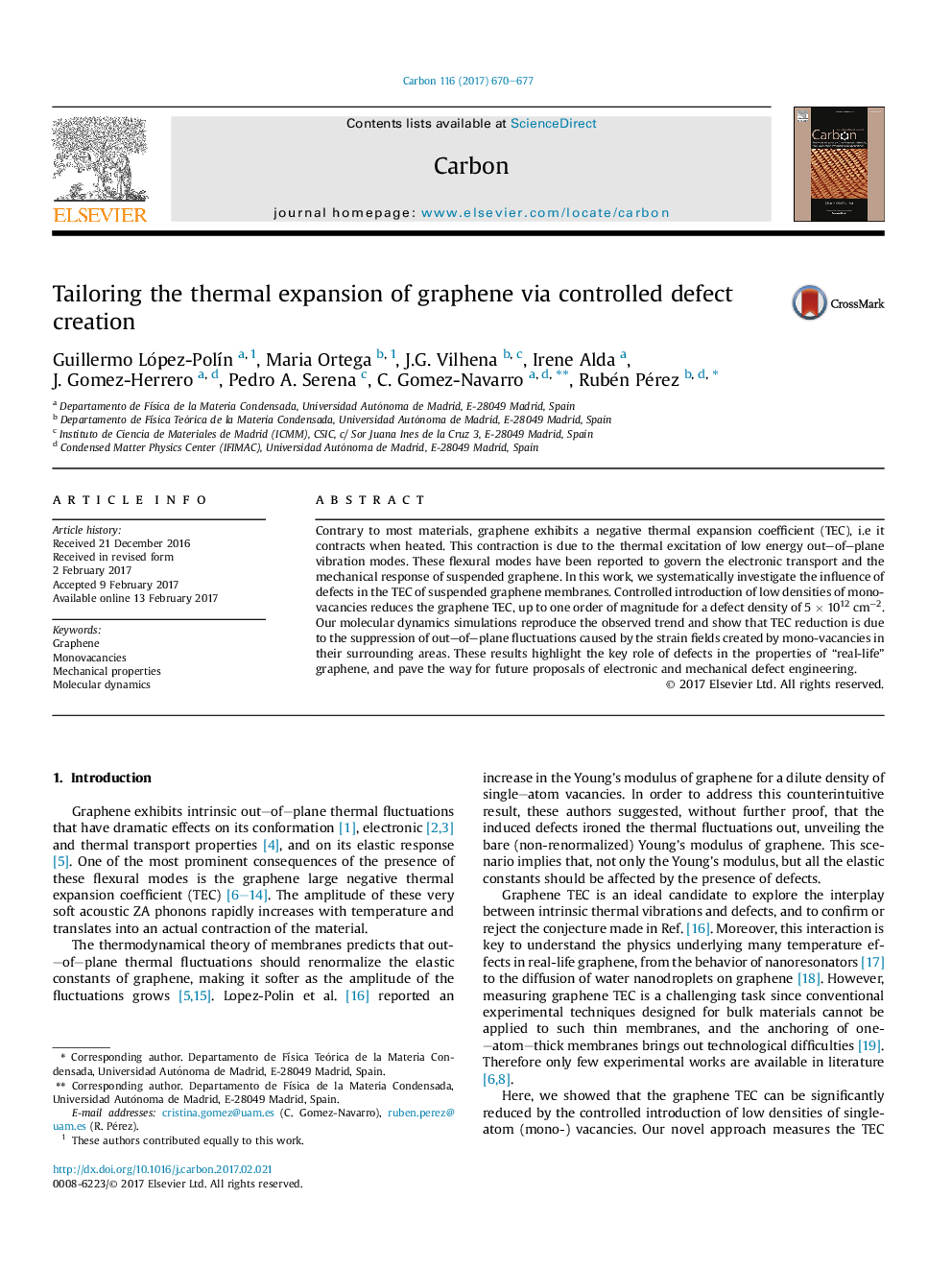| Article ID | Journal | Published Year | Pages | File Type |
|---|---|---|---|---|
| 5432225 | Carbon | 2017 | 8 Pages |
Contrary to most materials, graphene exhibits a negative thermal expansion coefficient (TEC), i.e it contracts when heated. This contraction is due to the thermal excitation of low energy out-of-plane vibration modes. These flexural modes have been reported to govern the electronic transport and the mechanical response of suspended graphene. In this work, we systematically investigate the influence of defects in the TEC of suspended graphene membranes. Controlled introduction of low densities of mono-vacancies reduces the graphene TEC, up to one order of magnitude for a defect density of 5Â ÃÂ 1012Â cmâ2. Our molecular dynamics simulations reproduce the observed trend and show that TEC reduction is due to the suppression of out-of-plane fluctuations caused by the strain fields created by mono-vacancies in their surrounding areas. These results highlight the key role of defects in the properties of “real-life” graphene, and pave the way for future proposals of electronic and mechanical defect engineering.
Graphical abstractGraphene negative thermal expansion can be tuned through the quenching of out-of-plane fluctuations by the stress field created by defects.Download high-res image (916KB)Download full-size image
